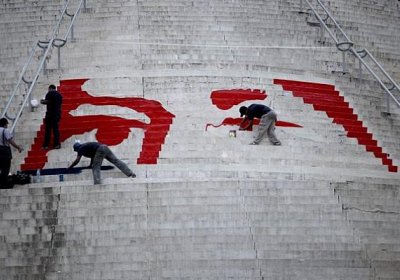The Agricultural Social Production Unit (UPSA) Caquetios, located in Cabudare, in Palavecino municipality, Lara state, is run by the Brazilian Movement of Rural Landless Workers (MST). A campesino organisation, the MST shares similar objectives to those of former president Hugo Chavez and the pro-poor Bolivarian Revolution he led – in particular, land collectivisation as the best way to grow food and put an end to rural inequality.
In 2006, the MST was invited to Venezuela to take over a 40-hectare estate as part of Chavez’s attempt to transform Venezuela’s countryside. Since then, the group has been joined by several Venezuelan farmers, with both groups learning new experiences from each other.











